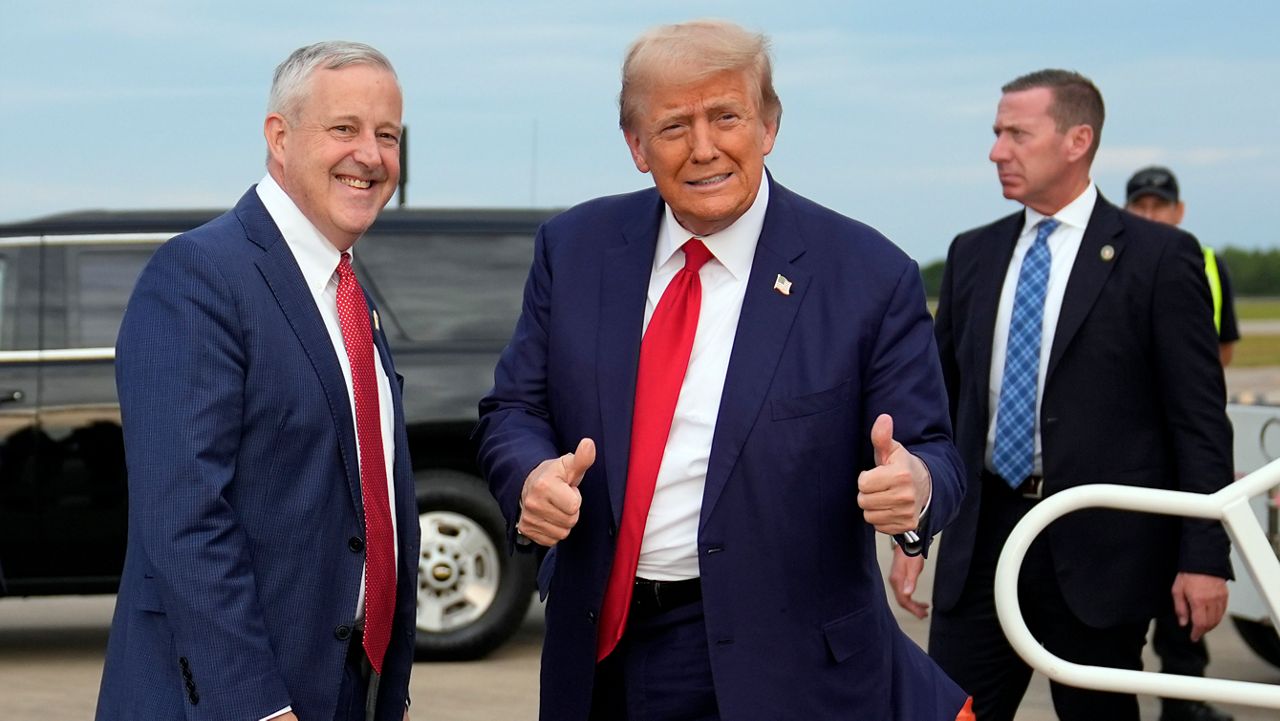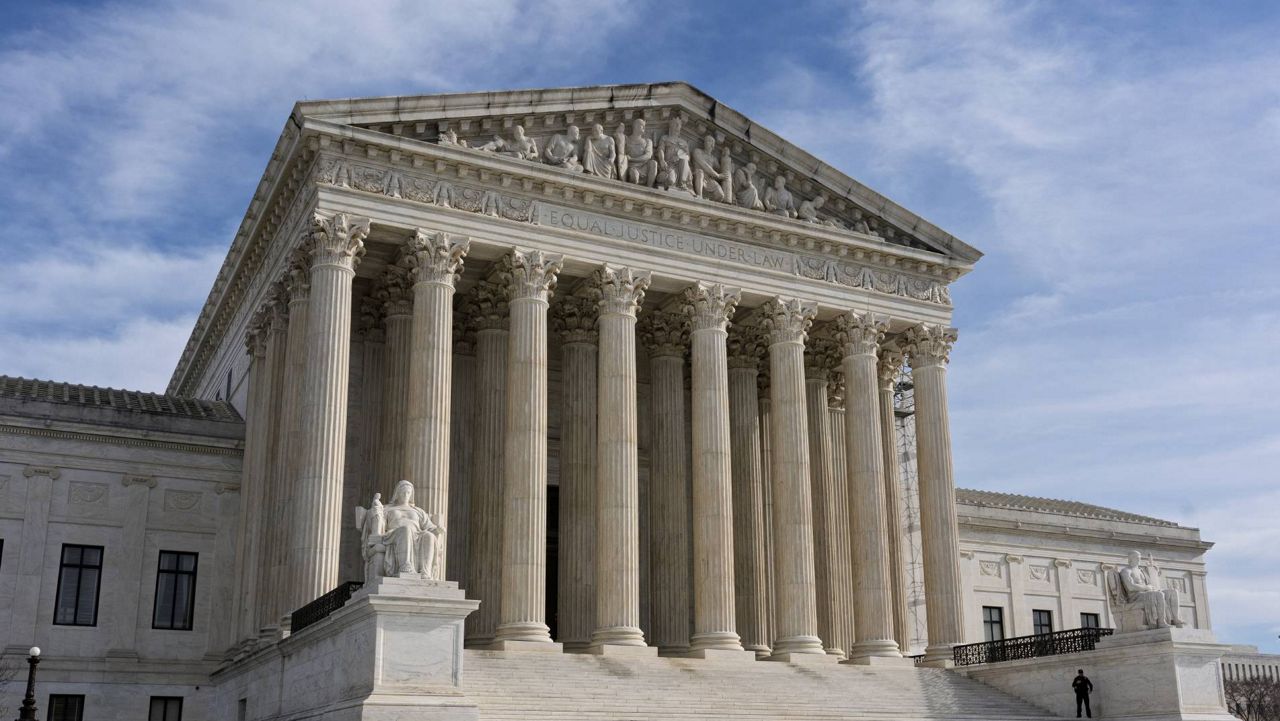For Taylor Swift fans, Tuesday presented a series of frustrating challenges when Ticketmaster – the vendor for the singer’s highly-anticipated “Eras Tour” – could not handle the influx of pre-sale customers, forcing would-be-concert-goers to wait in hours-long digital lines, sometimes to no avail.
For a handful of lawmakers in Congress, the fiasco represented a much wider problem: that of massive companies merging with others and exerting a monopoly on the market.
In response, a slew of Democrats called on both the Department of Justice and the Federal Trade commission to investigate Ticketmaster’s practices.
In the Senate, Connecticut’s Richard Blumenthal said Tuesday’s issues with Ticketmaster represented “a perfect example of how the Live Nation/Ticketmaster merger harms consumers by creating a near-monopoly,” adding that he has “long urged DOJ to investigate the state of competition in the ticketing industry.”
“Consumers deserve better than this anti-hero behavior,” he quipped, a reference to the song "Anti-Hero" on Swift’s most recent album.
Sen. Amy Klobuchar, D-Minn., penned a concurring statement, saying the United States needs stronger antitrust enforcement.
“Monopolies wreak havoc on consumers and our economy,” Klobuchar wrote in part. “When there is no competition to incentivize better services and fair prices, we all suffer the consequences.
Among the first lawmakers in the House of Representatives to react was Rep. Alexandria Ocasio-Cortez, D-N.Y., who posted on Twitter: “Daily reminder that Ticketmaster is a monopoly, it’s (sic) merger with LiveNation should never have been approved, and they need to be reigned in.”
“Break them up,” she added.
The New York representative was soon joined by fellow Democrats in the House, including Rep. David Cicilline, D-R.I., who said Ticketmaster’s “excessive wait times and fees are completely unacceptable, as seen with today's @taylorswift13 tickets, and are a symptom of a larger problem.”
“It’s no secret that Live Nation-Ticketmaster is an unchecked monopoly,” Cicilline continued, pointing to a letter he and other members of the caucus sent to the DOJ and FTC in 2021 concerning ticket price gouging from the company.
The letter alleged that Ticketmaster and its parent company, Live Nation, are “leveraging [their] position in the primary channel to drive out competition in the resale market and allowing for potentially unfair and deceptive practices.”
Representatives for Ticketmaster and Live Nation have not yet responded to Spectrum News' requests for comment. Ticketmaster did, however, issue a statement on Tuesday morning saying there was "historically unprecedented demand" for the tour, adding: "Thank you for your patience as we continue managing this huge demand." The company also delayed some sales for several hours and pushed another back by a day.
According to a 2019 report from the Government Accountability Office, Ticketmaster controlled over 80% of primary ticketing across the United States for concerts, sports games and other major events. The company also held the second-largest market share in secondary ticket sales, behind StubHub.
The issue dates back to Ticketmaster’s contentious 2010 merger with Live Nation to create Live Nation Entertainment. Artists and fans alike pushed back against the decade-old agreement before it was finalized, with some – including Bruce Springsteen – expressing frustration that Ticketmaster would send fans to its subsidiary sites like TicketsNow, which has been accused of upselling tickets at a higher price.
In a strongly-worded letter penned in 2009, Springsteen predicted further trouble should the Ticketmaster - Live Nation merger go through.
“A final point for now: the one thing that would make the current ticket situation even worse for the fan than it is now would be Ticketmaster and Live Nation coming up with a single system, thereby returning us to a near monopoly situation in music ticketing,” Springsteen wrote in an open letter, adding: “The abuse of our fans and our trust by Ticketmaster has made us as furious as it has made many of you.”
Springsteen’s prescient warning came to fruition on Tuesday, when Ticketmaster experienced numerous problems and delayed sales despite having control over how many individuals were registered as “verified fans” for presale tickets.
For fans to have the opportunity to purchase tickets in the pre-sale period, they had to register before Nov. 9 as a "Verified Fan" – a system intended to keep tickets out of the hands of scalpers – in order to possibly receive a presale code that would then let them into a digital queue. Individuals could “boost” their position in the line if they had an account on the official Taylor Swift merchandise website, if they had previously purchased tickets to the canceled 2020 “Lover Fest Tour,” if they had purchased a presale version of the “Midnights” album and more.
But numerous reports on Tuesday surfaced claiming those whose spots were supposed to be “boosted” were actually sent to the end of the digital line; some said they were unable to purchase tickets at all.
While the event ticketing industry itself is not federally regulated, the FTC broadly “prohibits unfair or deceptive acts or practices in or affecting commerce,” meaning it can enforce regulations against companies who violate those federal standards.
But it is largely up to individual states to investigate claims of deceptive practices. Officials in at least one state are already looking into some of those complaints.
Tennessee Attorney General Jonathan Skrmetti told reporters on Tuesday that it is his job “to ensure that the consumer protection laws and antitrust laws in Tennessee are being honored," saying his office has already received “a number of complaints” about the Ticketmaster purchasing process.
"I'm not saying it happened," Skrmetti asserted. "But we're going to make absolutely sure it didn't."
Skrmetti’s office will look into a number of issues including whether Ticketmaster violated agreements with customers by not allowing some verified fans to move up in the queue as promised in previous emailed communications, whether the company’s massive market share negatively impacted customer service and whether prices were artificially increased thanks to scam resales.
“We know that consumers were given presale codes to purchase tickets, and we need to look into exactly what was promised to them and whether that was provided,” he said.
It’s not only lawmakers calling for more oversight into Ticketmaster’s operations. A petition on the Action Network website calling for the DOJ to investigate the company already boasts more than 17,000 letters sent to lawmakers.
“Without competition in the industry, music lovers, sports fans, and event goers are completely at the mercy of this mega-corporation,” the petition reads in part. “The Department of Justice needs to hear from people that care about Ticketmaster’s abuse. Fill out this form to send an email to the DOJ asking them to investigate Ticketmaster and move to break them up.”
Spectrum News has reached out to the FTC and the DOJ for comment.


_crop)

